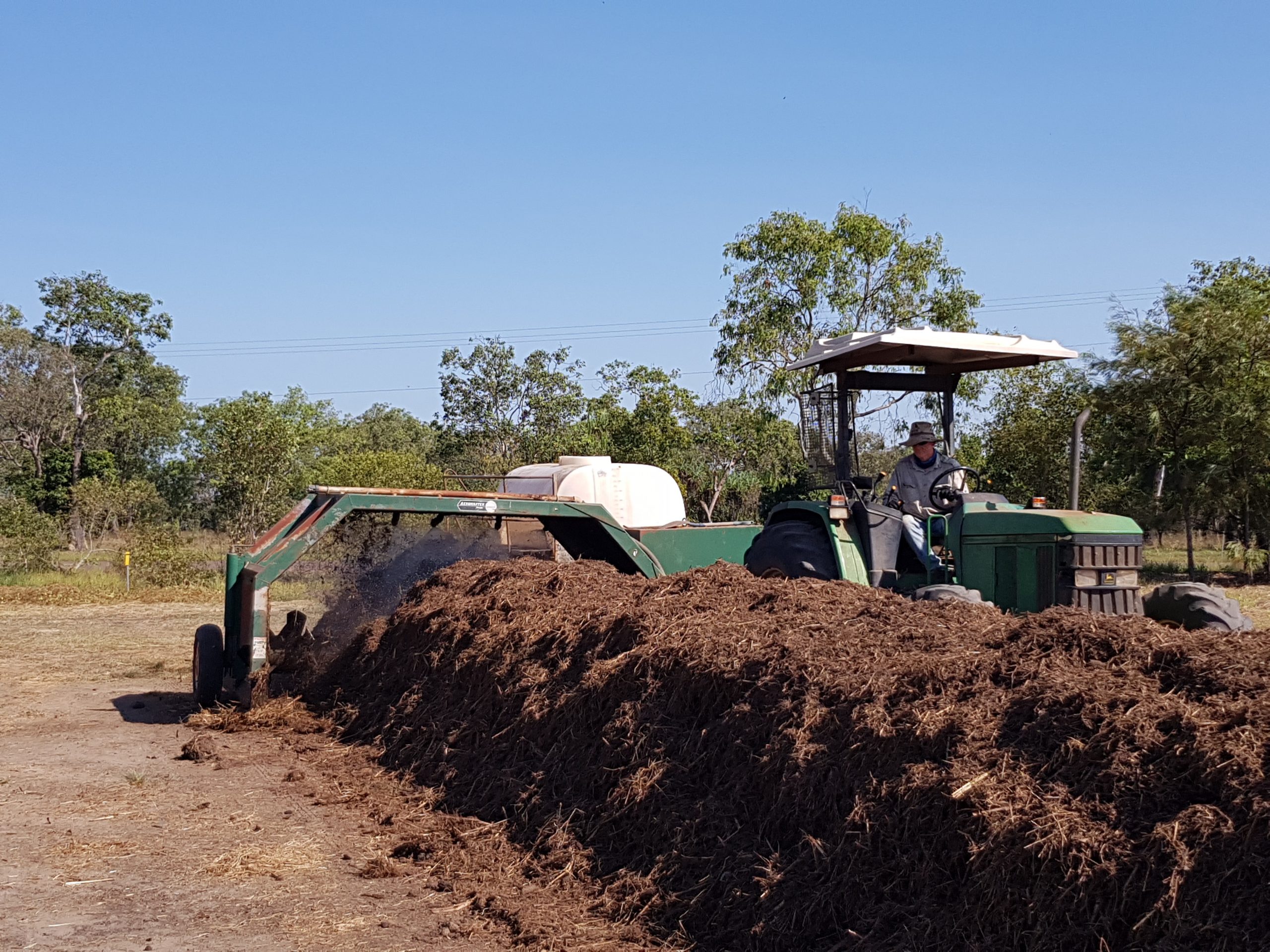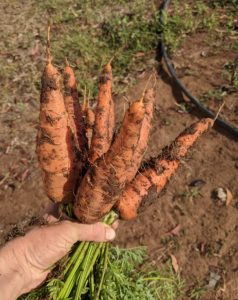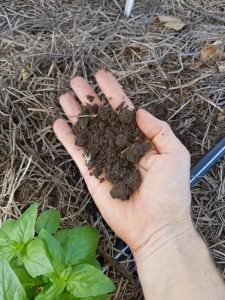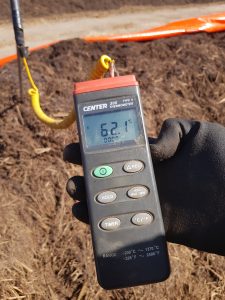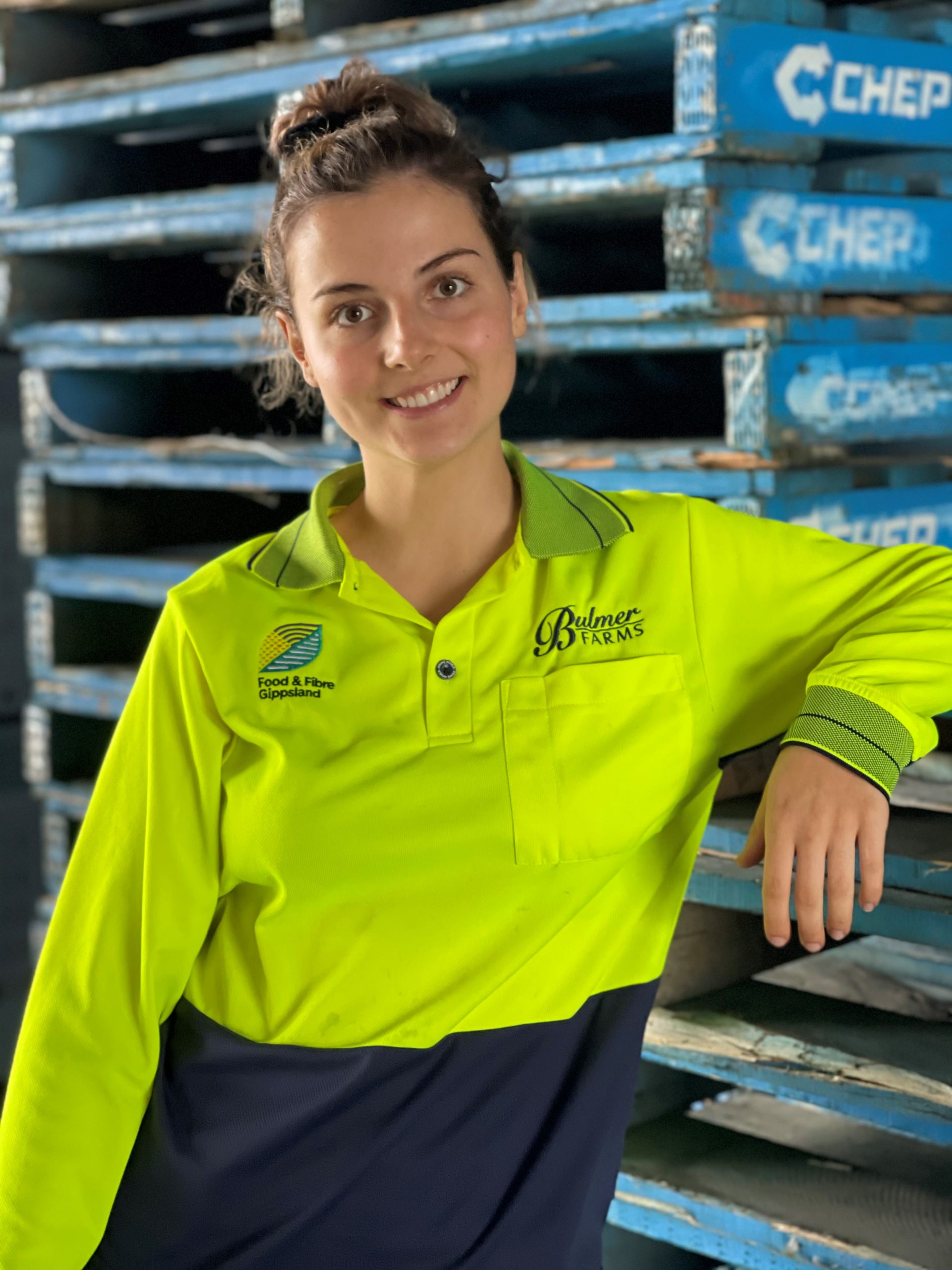
Workforce focus for VegNET – Gippsland
13 September 2021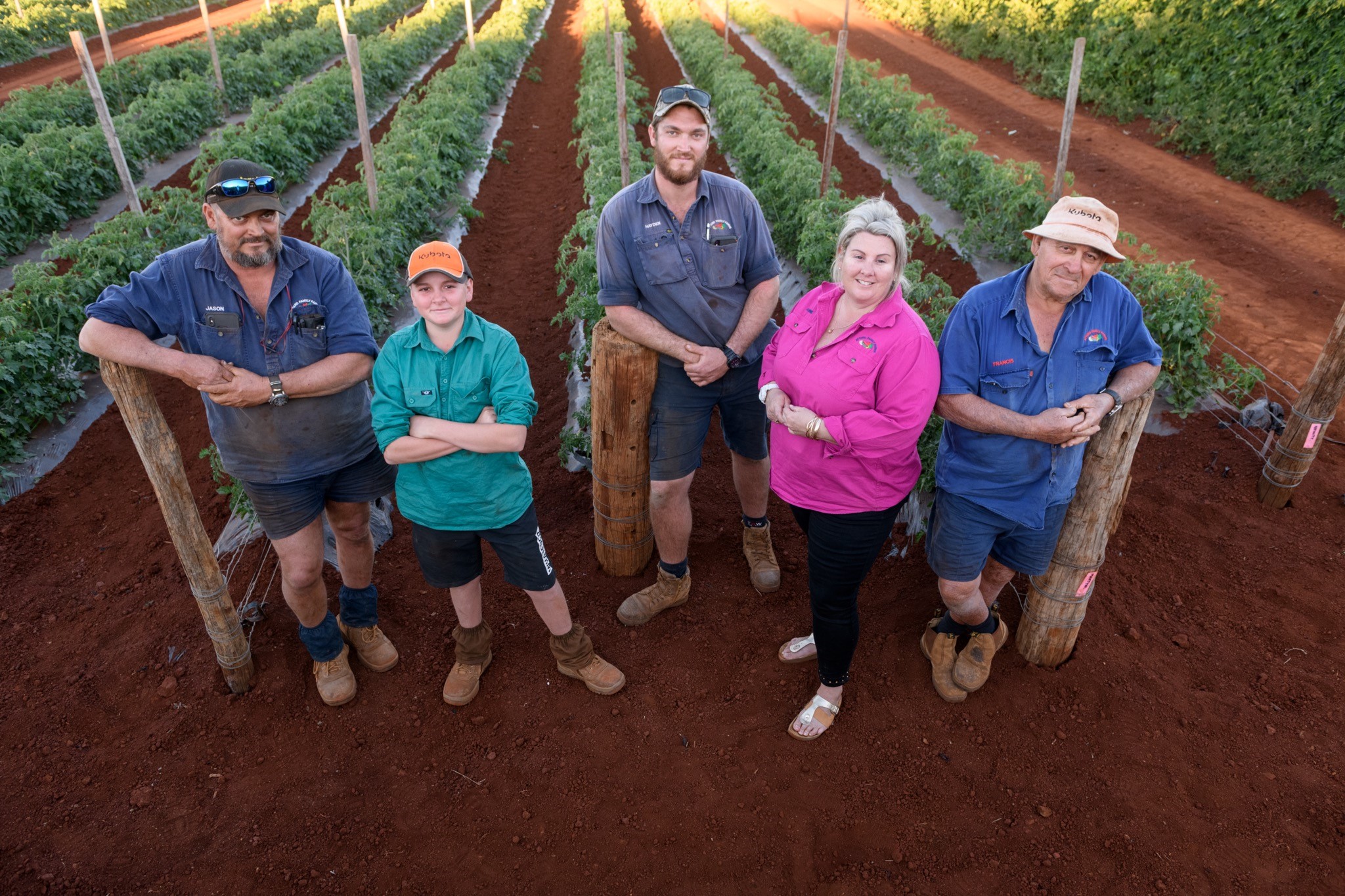
Annie Attard: A trailblazer in the Wide Bay-Burnett region
13 September 2021The Phase II VegNET – Northern Territory Regional Extension Plan found an identifiable gap in grower awareness and understanding of NT soils. Unearthing NT Soil Wealth became one of the five key focus areas to promote regionally over the rollout of the 2020-2025 Regional Extension Plan, with over 1500 hectares across the Top End dedicated to vegetable production annually.
The Northern Territory’s soils are a variable mixture of Kandosols, Tenosols, Rudosols and Vertosols; all of which are known to have limiting factors for horticultural production.
A grower survey highlighted that over 90 per cent of producers in the Northern Territory acknowledge that they have a lack of understanding on soils and the influences that good soil management practices could have on productivity. There has been a significant amount research, development and extension completed on soils in the southern areas of Australia, with little to very little emphasis or focus across the Top End.
A greater understanding on soil and its plant interactions represents a huge opportunity to produce immediate gains with on-farm productivity and profitability. As the Northern Territory vegetable industry continues to expand, there is an ongoing need to support new and existing growers to help the industry grow and be sustainable into the future. This can be achieved through demonstrating and modelling current best practice models as well as through valuable extension activities.
Local trials
In collaboration with the Territory Natural Resource Management’s NT Soil Consortium, the Unearthing NT Soil Wealth project has helped to conduct a local compost trial comparing a conventional turn with a fermentation composting method. This is established and conducted on an organic farm in Darwin’s rural area.
VegNET – Northern Territory Regional Development Officer Simone Cameron has been supporting the Northern Territory’s Regional Agricultural Landcare Facilitator, Emily Hinds, with conducting this trial. Local organic grower Bluey Stoldt has engaged in hosting the trial at his seasonal vegetable production farm, Organic Ag.
Bluey has been a passionate advocate for composting and has been practicing the art of compost making for many years. The current method he uses is the conventional, aerobic method that requires constant turning to aerate the row. This also requires regular use of a machine, attachments and water at each turn, increasing the costs of the product through fuel, labour and water.
Bluey has not trialled the fermentation compost method before, which involves the use of an inoculant and requires reduced inputs in terms of water and physical intervention. He is keen to see the end of the trial to compare the end compost product analysis.
If the fermentation method results with a comparable or better compost product to his usual method, it represents a big opportunity to reduce input costs to the product, and importantly for Bluey more time for farming.
“I love making compost and as an organic farmer, it’s a really critical part of our soil management and nutrition. If this (fermentation compost) works out I’m very excited about it. It means less water and fuel, and all the time I’ll gain,” Bluey says.
Objectives and next steps
The aim of the trial is to demonstrate the benefits of composting to soil health and fertility through the utilisation of regionally available resources and ingredients, as well as appropriate methods and inputs required for composting.
It also aims to demonstrate to producers the benefits of considering their soil to be one of their most important farm assets, and how efforts to improve soil can made simply by adding compost.
On completion of the trial, a one-day composting on-farm workshop will be held. This will be open to interested producers, farmers, horticulturalists and industry stakeholders, and will include a visit to the trial site to observe the equipment, ingredients and final products.
Agro-ecologist David Hardwick from Soil Land Food, one of Australia’s leading soil extension specialists, is overseeing the trial and will be presenting and delivering the workshop summation.
Supporting growers
In her role as the NT’s Regional Agricultural Landcare Facilitator, Emily Hinds believes that practical demonstrations of this type are so important for encouraging the industry to take up positive soil management techniques and implement practice change.
“If they can see and hear from their neighbours about what is involved, observe the set up and machinery – and then be there at the end to feel the compost and the soil after application – I think it goes a long way to increasing positive, sustainable soil management practices,” Emily says.
The workshop will demonstrate the benefits of adding compost to the soil, such as increased soil fertility and reduce erosion risks, which Emily says is important for the Top End’s generally poor fertility soils and high rainfall events in the wet season.
Emily and Simone have supported Bluey with regular visits to his farm to check on the trial, provide contacts for information and ingredients and more importantly, deliver a lunch order for him from town on one of their visits!
If local producers don’t have the means to create their own compost, the collaboration and networking that occurs at these events opens further opportunity for sharing. This is something Bluey thinks would be beneficial.
“If I wasn’t farming, I’d be making compost. A lot of people are interested in buying it, but I never have enough,” he says.
At the time of writing, the workshop day has been scheduled to run twice. Unfortunately, it has been postponed on both attempts due to the ongoing uncertainties of COVID-19 and the travel restrictions imposed across the country.
It is hoped that this event will be delivered in August through a hybrid model. It will culminate in a proposed Soil Symposium Day to be rolled out across three regions in the Northern Territory: Darwin, Katherine and Alice Springs. This will occur in early September.
With the original workshop capped at 40 registrations, it demonstrates the desire for our Top End producers to know more about their precious asset and resource – soil.
Find out more
Please contact Simone Cameron at bio@ntfarmers.org.au.
VegNET – Northern Territory is a strategic levy investment under the Hort Innovation Vegetable Fund.
This project has been funded by Hort Innovation using the vegetable research and development levy and contributions from the Australian Government.
Project Number: VG19017
Cover image: Windrow turning the compost. Images courtesy of Simone Cameron.

